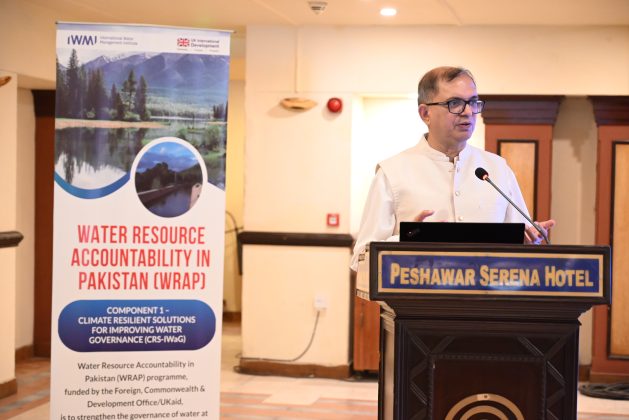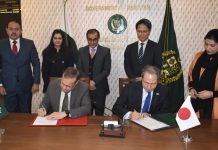By Bashir Khan
ISLAMABAD: As climate change, high energy costs, and water shortage continue to affect farmers in Khyber Pakhtunkhwa (KP), experts have called for using solar-powered irrigation systems (SPIS) to help solve these problems.
Solar irrigation uses sunlight instead of fuel to pump water, making it cheaper, environment-friendly, and better for long-term use.
A meeting was held in Peshawar where experts, government officials, farmers, and private companies came together to discuss how solar irrigation can improve farming in KP. The workshop was organised by the International Water Management Institute (IWMI) as part of its work on climate-friendly water solutions in Pakistan. The programme is supported by the UK government and CGIAR’s Climate Action Science Program.
Dr Mohsin Hafeez, Director at IWMI, said that most of Pakistan’s water is used in farming, but much of it is wasted due to poor methods. He explained that around half of the water farmers use comes from underground, and this underground water is running low because it is being used faster than it is being refilled. He said solar irrigation systems can help reduce pressure on underground water and also cut fuel costs for farmers.
“Solar irrigation is not just about technology. It helps farmers save money and prepares them to face climate problems,” said Dr Mohsin. He added that IWMI is working with the KP government to expand solar irrigation in a fair and smart way.
Two digital tools were introduced at the event — the Solar Suitability Mapping (SSM) and the Solar Irrigation Pump Sizing Tool (SIP-ST). These tools will help decide where solar pumps can be used best and what size of pump is needed for each farm.
Engr. Kalsoom Rehman from the Agriculture Engineering Department said that although solar pumps cost more in the beginning, they last longer and don’t need much maintenance. She said farmers need proper guidance when setting up these pumps to avoid overuse of groundwater. She also said solar pumps are already becoming popular in KP, especially in areas that don’t get canal water.
Muhammad Amjad Shamsher, a senior official from the Public Health Engineering Department, warned that Pakistan’s per-person water availability has dropped from 5,200 cubic metres in 1950 to only 850 in 2020. He said water security is closely linked to food security, and Pakistan is close to becoming a water-scarce country. He also shared that 2,000 solar-powered tube wells have already been installed in different parts of the province. However, he stressed the need for better monitoring of underground water. In group discussions, participants talked about ways to plan better and work together across different departments.
They said clear data, proper training, and strong partnerships with private companies are needed. They also discussed the importance of improving repair and maintenance services for solar systems.
The workshop ended with a shared commitment to promote solar irrigation as a key part of sustainable agriculture in KP. The participants agreed that switching to solar power would protect underground water, help farmers earn better, and make KP more prepared for climate challenges.






